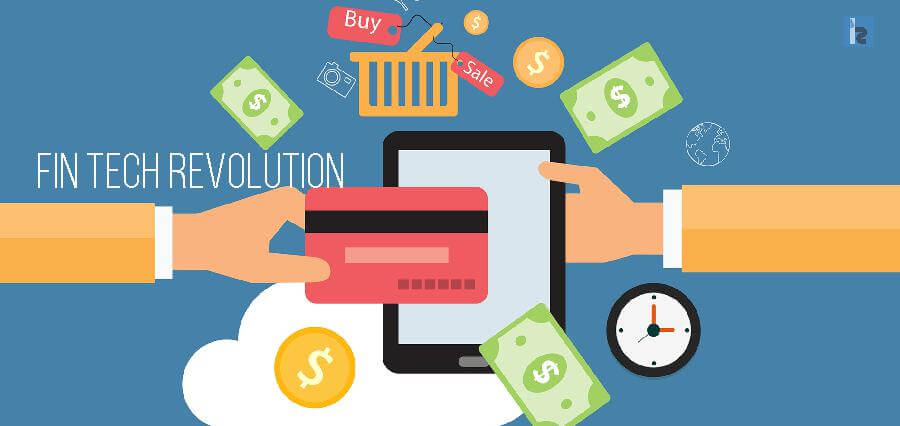Digital technology provides a low-cost way for people in developing countries to send money to each other, buy and sell goods, borrow and save as long as the financial-regulation environment is supportive,” – Bill Gates, Microsoft, Co-Founder
In a developing country like India, the need for the technological disturbance in the banking as well as financial sector is really critical as the 19% population of the country is still unaware of the growing finance and banking practices. The current financial technology is far more different than the traditional methods of banking and financial services, thereby creating its own mark of innovation and technology. The FinTech startups are directly providing with the new applications, processes, products, or business models in the financial industry, composed of varied complementary financial services. These services are effective as an end-to-end process with respect to the internet. The important and trending factors that govern the startups in the emerging technology related to banking and financial services are:
Integrated Digital Banking
New start-ups are emerging with the growing economy and financial sector with various functions that include digital banking in an integrated manner. Next generation digital services will create a digital ecosystem that will retain the existing customers and attract new ones. Integrated digital banking deals with the partnership of financial services providing companies and financial technology startups or other non-traditional market participants to lead to the digital transformation. The digital-only bank provides end-to-end services through digital platforms like mobile, tablets and internet smoothly. Integrated digital banking itself is a non-segregated banking exercise which will enhance the customer satisfaction by providing anywhere anytime banking which is beneficial in cost savings and time consuming.
Augmented Reality (AR) and Virtual Reality (VR)
“With a sophisticated, learning, voice-powered platform able to make app usage, including banking apps, more convenient and user-friendly than ever, the advantages of branch banking will continue to diminish, with stylish, tech-heavy branches unable to compete with the ease of access and scope of emerging digital channels.” – Temenos, a software company.
Banking and simple transactions with respect to AI-driven chatbots have already begun. Use of banking bots will surely be cost effective and beneficial to the customers. Virtual reality will soon be able to support most banking queries significantly. Augmented Reality (AR), Virtual Reality (VR) and Mixed Reality (MR) are the next-generation computing processes that integrate sensors, big data, cloud, artificial intelligence (AI), and wearables. This technology can also be extremely effective in the growing markets, where customers have a less possibility to visit a bank.
Digital Payments Driving the Financial Inclusions
These are the non-cash transactions made with the help of digital channels. The digitalization of financial and banking practices have created an absolute change in the growing market as per the online and offline purchases are concerned. These digital payments will bring a revolution enabling the financial services by replacing classic and traditional payment methods. The digital payments will put an end to the cash payments and build trust amongst the existing users and create new users. This has influenced the present generation to interact with the mobile wallets, P2P (person to person) mobile payments, foreign exchange remittances and real-time payments. Establishment of new agreements and procedures in traditional ways of banking and finance is obtained with the help of FinTech financial services. Digital payments are driving the financial inclusions and leading the establishment of the digital infrastructures.
Artificial Intelligence (AI) and Machine Learning
Artificial Intelligence has now reached beyond the human scale with respect to the FinTech financial services and banking. Machine learning and AI can process and analyze a huge amount of information about the users. This comparison between data and information results in suitable services/products that customers need which will generate a high-level customer satisfaction. This will also are allow the companies to cut costs, automate different types of processes, as well as boost their bottom line. AI can provide the FinTech with security. This technology can aid organizations in identifying potential future attacks, suspicious transactions, and fraudulent behavior. Machine learning will reduce the processing times. Also, it will help in reducing duplicate expenses and human error.
Blockchain Technology, Energizing the Financial Services
The Blockchain technology is a new innovation for financial services. It basically allows the users to hold and make financial transactions in a completely transparent manner. There is no mediator in between two people making the financial transaction, and the whole process becomes easier, cheaper and majorly reliable. This technology can secure the financial exchange and transactions of the customers. The Blockchain technology consists of distributed servers which will help in sharing information about the customer’s transaction. Blockchain technology is now energizing the business practices in the FinTech startups.
“Blockchain technology has the ability to optimize the global infrastructure to deal with global issues in this space much more efficiently than current systems.” – Marwan Forzley, Founder of Align Commerce
The changes in the FinTech technology can bring a great technology variation and innovation to the world for the emerging generation. These FinTech companies have become a genuine alternative for the general public users in the traditional methods by establishing a new way of banking system. The FinTech promises better management of money by making transactions simple and accessible. The emerging FinTech startups will be able to gain more user confidence and vastly increase their position in the future market. This combination of finance and technology will precisely act as the motor for the markets of the finance and banking sectors with respect to the emerging FinTech startups.

Insights Success stands as the epitome of trust and authority. It has earned its reputation as the foremost source of business intelligence, providing readers with a gateway to the pulse of Bharat’s advancing business landscape.
Quick Links
Enquiry
info@insightssuccess.in
for more information on advertising opportunities with Insights Success magazine.
8793630422 / 24
Reach out to Us
Insights Success Media and Technology Pvt. Ltd.
512, Brand Square,
Kunal Icon Rd, Pimple Saudagar,
Pune, Maharashtra 411027

